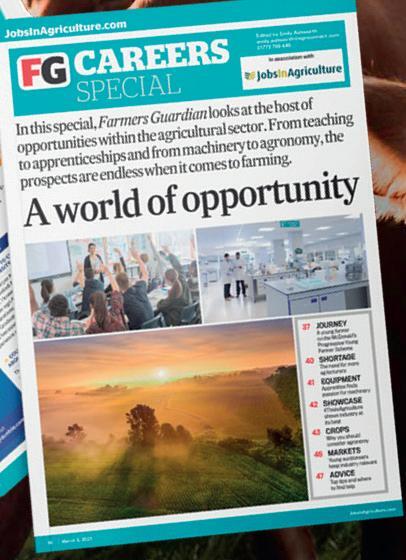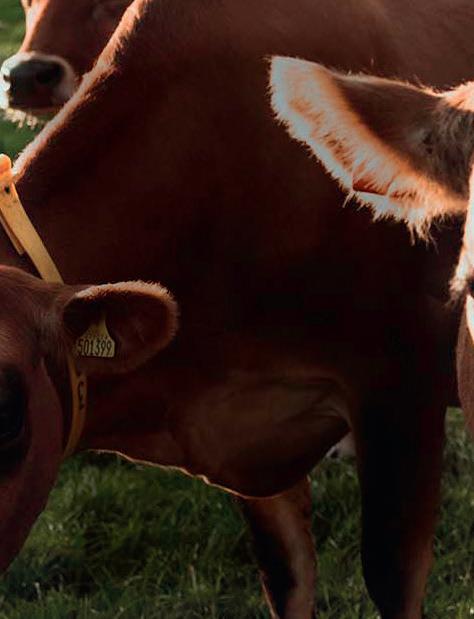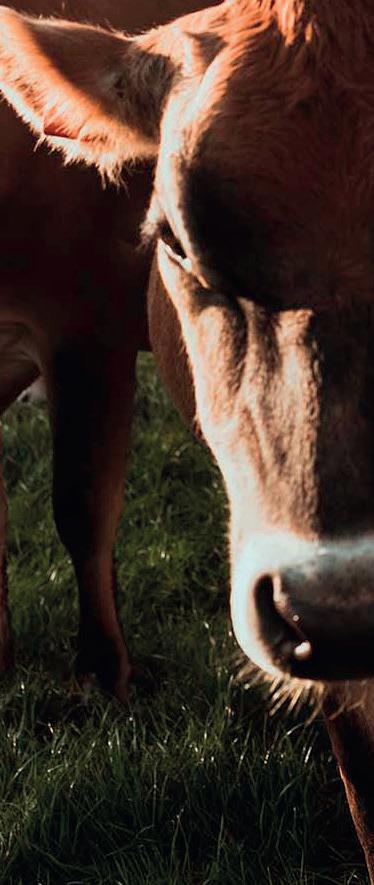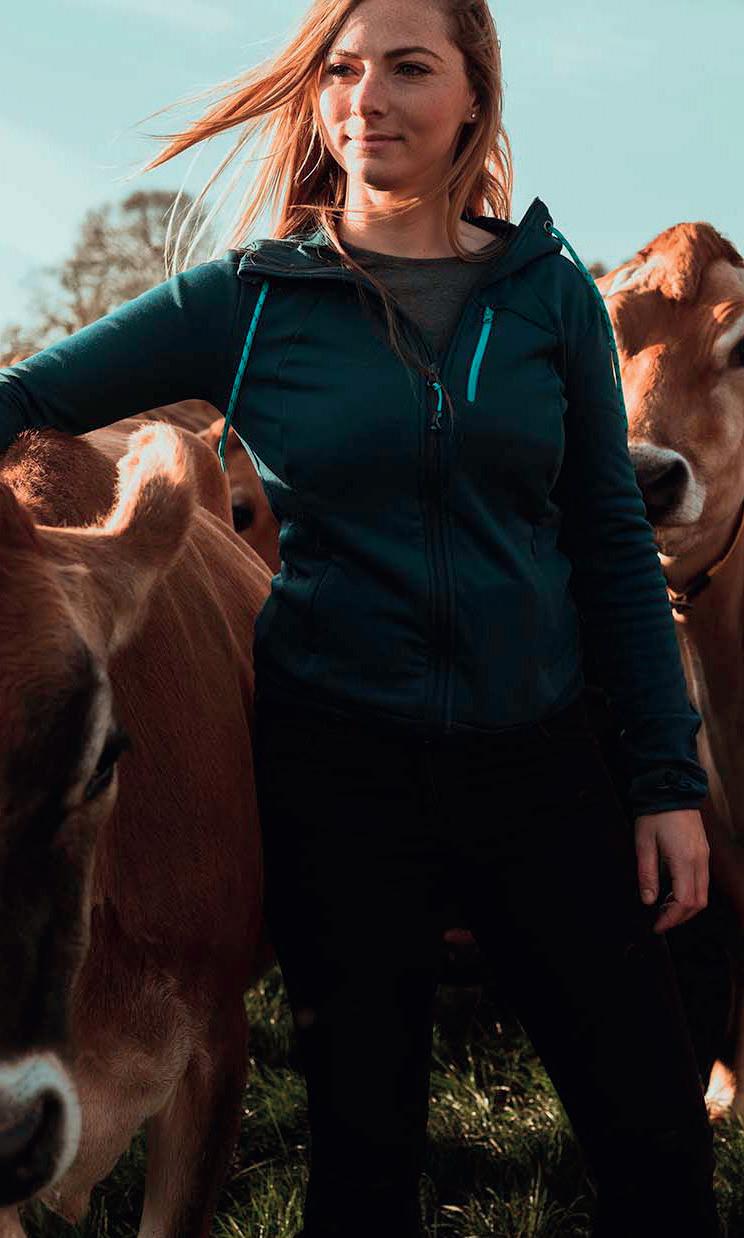Section here Second brow



In
Exploring the view from the classroom
Helping Scotland’s butcher sector thrive
The technological side to the poultry industry

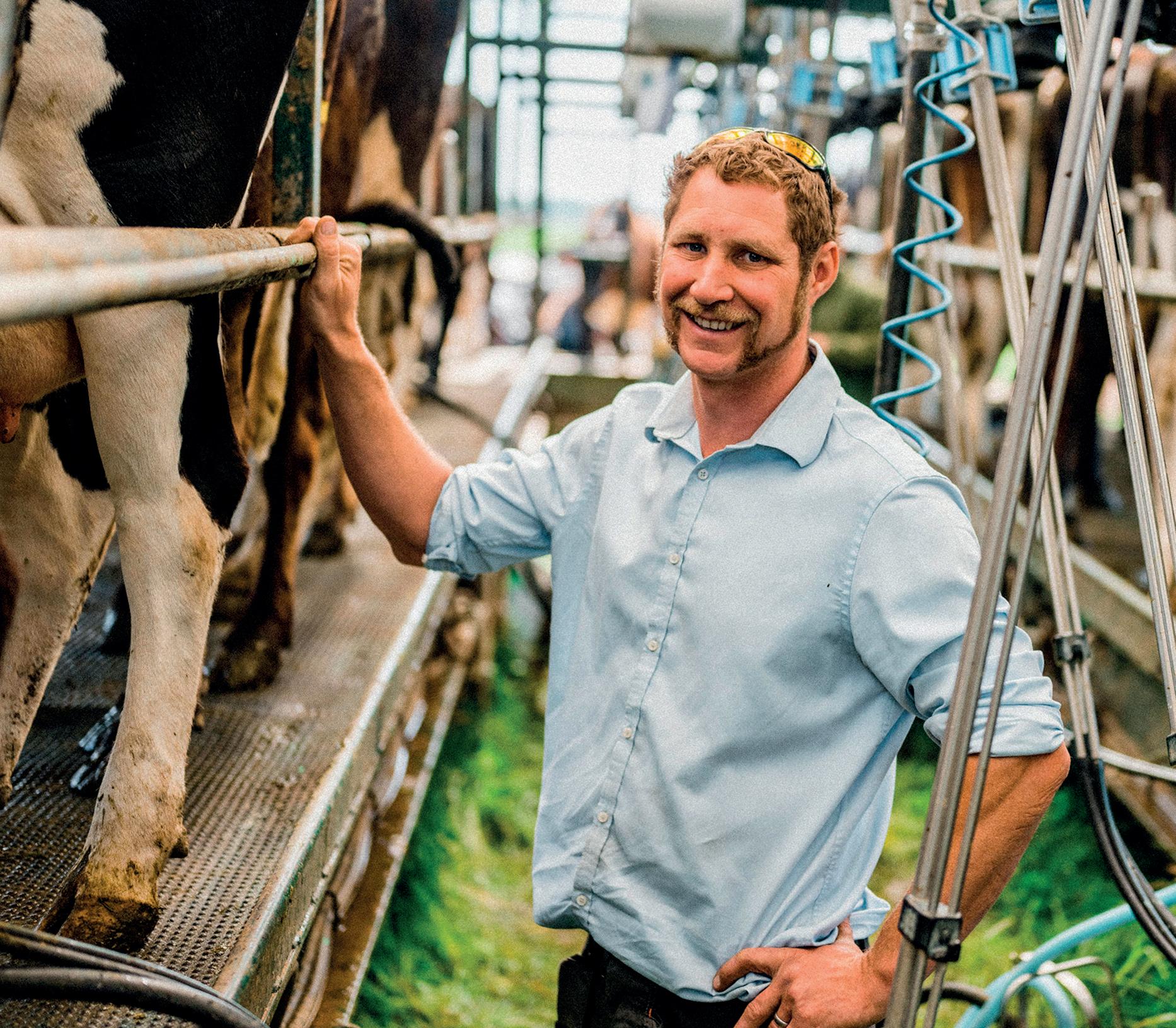
Edited by Emily Ashworth
07977 706 711
In association with
How one young farmer’s start-up is flourishing
Access to funding, space and mentorship are often the key stumbling blocks for budding entrepreneurs in getting their ideas realised.
But a group of farms and estates have come together to build a model that gives emerging businesses a leg up while creating a more integrated, circular approach to managing their land.
Pitch Up! connects holisticallyminded farms with sustainable land-based businesses needing access to land or space. They then share their resources, knowledge and land, operating through a diverse mix of agreements from joint ventures to turnover rents – whatever feels right for each farmer and business.
The idea was started by Tim May, managing director of the Kingsclere Estates in Hampshire. His ambition was to build a different model of farming the land, which would create economic stability, build community and protect nature at the same time.
He could see abundant opportunities with the raw materials on the farm, but did not have time to pursue them himself, so instead he went in search of partner businesses to develop new ventures with while sharing the risks and rewards.
Tim says: “The idea stemmed from trying to get more diversity onto the farm. From this I realised we needed more entrepreneurialtype people because the sorts of businesses we wanted to attract were a bit more novel.
“We also wanted to attract people with the basic financial knowledge needed to run a business, but also the practical skills. Very often people have practical experience but not business experience or vice versa, and it is about trying to get
We are trying to promote that to be a farmer, land does not need to be a barrier
TIM MAY
someone with the two who can get on with things and work round problems.”
Pitch Up! is inspired by circular systems to design out waste – so wherever possible, businesses use each other’s by-products or waste. It also allows for shared resources across the estate.
Kingsclere is now home to a wide range of businesses supported by Pitch Up!, including a roving dairy, a foraged pet food brand, a mobile egg business and a roaming meat smoker catering business for events.
Tim says: “We are trying to promote that to be a farmer, land does not need to be a barrier.
“Looking at our dairy business scenario, he is a farmer in his own right but he is not fixed to a piece of land because the whole set-up is mobile. It changes that dynamic and how we think about being a farmer.”
Two years after Pitch Up! was established at Kingsclere, Tim was approached by the 1,800-hectare (4,500-acre) organic Balcaskie Estate in Fife, Scotland, which was keen to mirror Tim’s idea.
They decided to team up as a partner estate and are now also home to a range of rural businesses joining through Pitch Up!, including the Fife Beekeepers Association, Stocks Events and Van Dyke Bros specialty coffee roaster, which relocated to Balcaskie from the Highlands to join the estate’s growing food and drink community.
Another four farms and estates across the UK also joined in 2024, with more in the pipeline for this year. And while Tim says many
Entrepreneurs bring:
■ Their idea or growing business
■ Time
■ Commitment and energy Farms and estates bring:
■ Land, office, production or storage space
■ Roadside or market retail opportunities
■ Business support to get new ideas off the ground
■ Raw materials/by-products
farmers are keen to get on board, his biggest challenge has been finding the right types of businesses to apply for the programme.
“Opportunities are there – farmers are not making loads of money from direct commodity trading, so if people have other ideas of profitable uses for land, there are not many farmers who would turn that down,” he says.
“Somehow that conversation needs to be started and those thoughts promoted, but that is not something necessarily being taught to young people.”
from the farm and other businesses based there
■ Low overheads, reduced risk and shared running costs
■ Potential to share costs of new equipment
■ Job share opportunities
■ Help with accounting, administration and marketing
■ Access to industry knowledge and contacts from the circular community
He hopes that Pitch Up! will help to normalise the process of businesses coming up with ideas and approaching farmers about developing them.
However, it is not just farming or food businesses which are encouraged to apply.
The newest addition at Kingsclere is Baboon Adventures, which offers off-road electric scooter tours along trails, tracks and woodlands across the estate.
“We are open to everything. It is all about thinking a bit sideways,” adds Tim.








Zak Hamersley, 27, tells Farmers Guardian how he became a lecturer in agriculture at Moreton Morrell College and enjoys inspiring the next generation.
Ido not come from a farming background – my father worked as a civil servant and my mum dedicated her career to running a number of environmental charities.
I grew up in rural Wiltshire, surrounded by livestock and arable land.
My sister works in sports media, a very different field from agriculture. Despite this, I have always had
a strong interest in food production and the dedication of the people involved in farming.
I studied agriculture at Lackham Agricultural College, gaining a huge amount of practical and theoretical knowledge.
Following my studies, I worked for a number of different organisations, including the Royal Veterinary College, based just outside London, which provided me with
insight into animal health and welfare within an agricultural context. Growing up with such easy access to the countryside, I was able to see the people and machines that worked on the land.
I witnessed the direct impact of their hard work on the land and the vital role it plays in our society. I wanted to be part of it.
Volunteering on a local farm when I was 12 years old gave me my first hands-on experience and the respect for the skills and knowledge involved.
For me, teaching is about more than just giving my students the knowledge; it is about solidifying the next generation of well-rounded agricultural professionals and, importantly, good people. It is important to pass on practi-
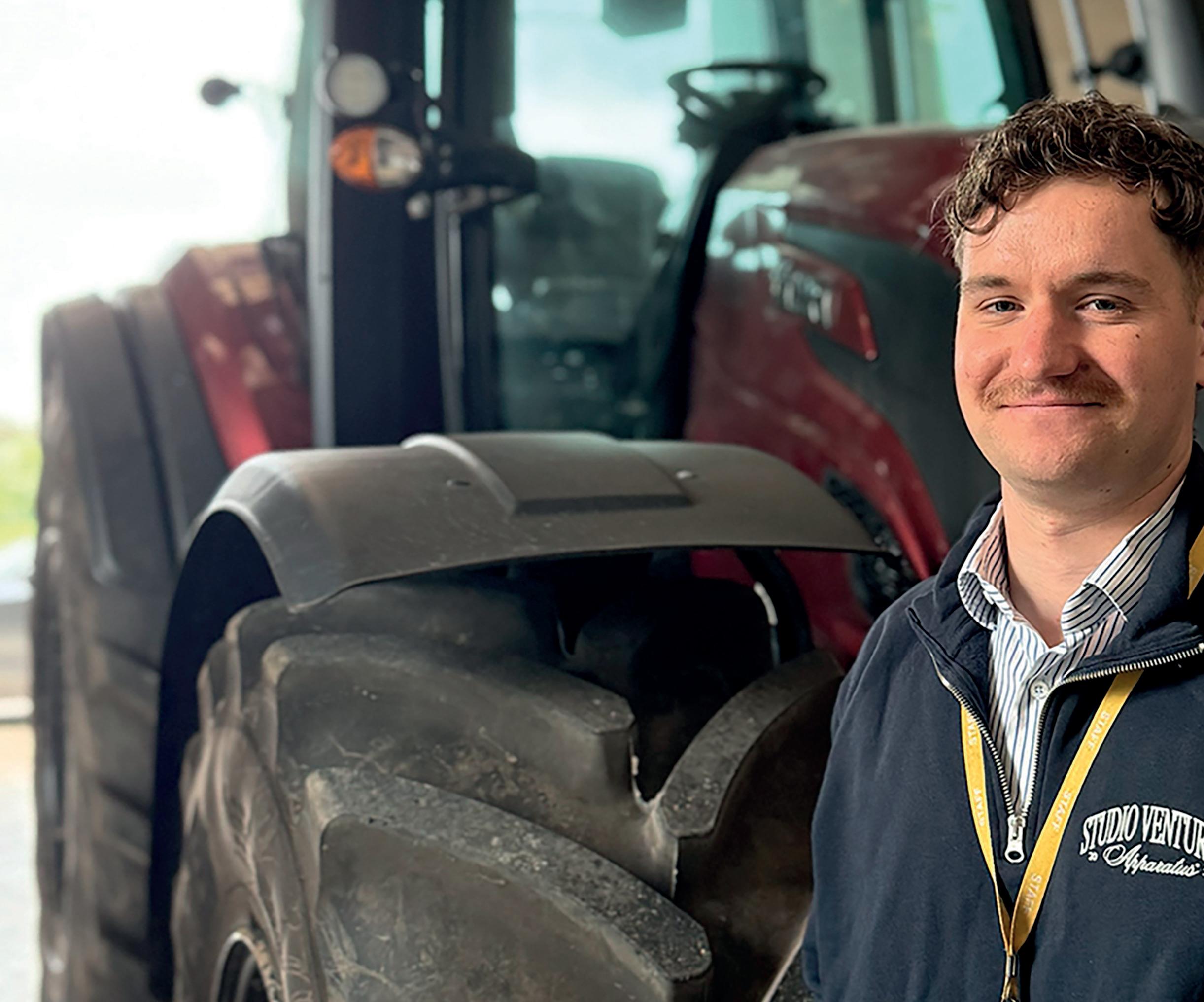

LAST year Farmers Guardian joined a petition to help get food, farming and sustainability embedded onto the national curriculum.
The petition now has more than 14,000 signatures and requires a response from Government.
To find out more, visit farmersguardian.com/petition
cal skills alongside theoretical understanding, but also in instilling values such as responsibility, resilience, respect for the land, livestock and each other.
It is about empowering them with the tools they need to thrive.
I teach a fantastic mix of students. Around a quarter come from established farming families, bringing with them a huge amount of practical experience.
However, the majority of my students come from non-farming backgrounds and are interested for a variety of reasons.
This diversity creates a dynamic classroom environment.
I think it is crucial to highlight the breadth of jobs within modern agriculture. It is not just about being out in muddy fields anymore.
We need to showcase the technology and the diverse career paths available – such as being a land agent, agronomist, nutritionist or maybe a teacher.

Importantly, we also need to emphasise the values within agriculture – hard work and community. This can resonate with people from all backgrounds.
It is vital we push agriculture more into our primary and secondary schools, highlighting success stories of individuals from nonfarming backgrounds.
Emphasising the vital role agriculture plays in society can help gain interest from a wider audience.
Despite the current challenges, be it policy changes, environmental concerns or market fluctuations, I remain very optimistic about the future of farming.
The resilience and adaptability of people within the industry is remarkable.
I feel there is a growing public awareness of the importance of local food production.
The passion and the developing sense of responsibility I see in my students gives me a lot of hope for the future.
Without a doubt, the best thing is seeing the students grow and
develop, not just academically but as individuals.
Watching them gain confidence, acquire new skills and become passionate about agriculture, while also developing into thoughtful and polite young adults, is incredibly rewarding.
Knowing that I have played a small part in shaping the next generation of farmers and agricultural professionals and, hopefully, good people, is a real privilege.
The biggest eye-opener has been the surprising number of similarities between being a teacher and working in the agricultural industry.
Before I entered the classroom, I had not fully appreciated the dedication involved in being a teacher.
There is a huge amount of responsibility and pressure to provide the best quality education that we can give the students.
Just like farming, there is always something that needs my attention – an email to reply to, a parent to contact, a lesson to plan and prepare.
These are similarities I have come to recognise and respect.
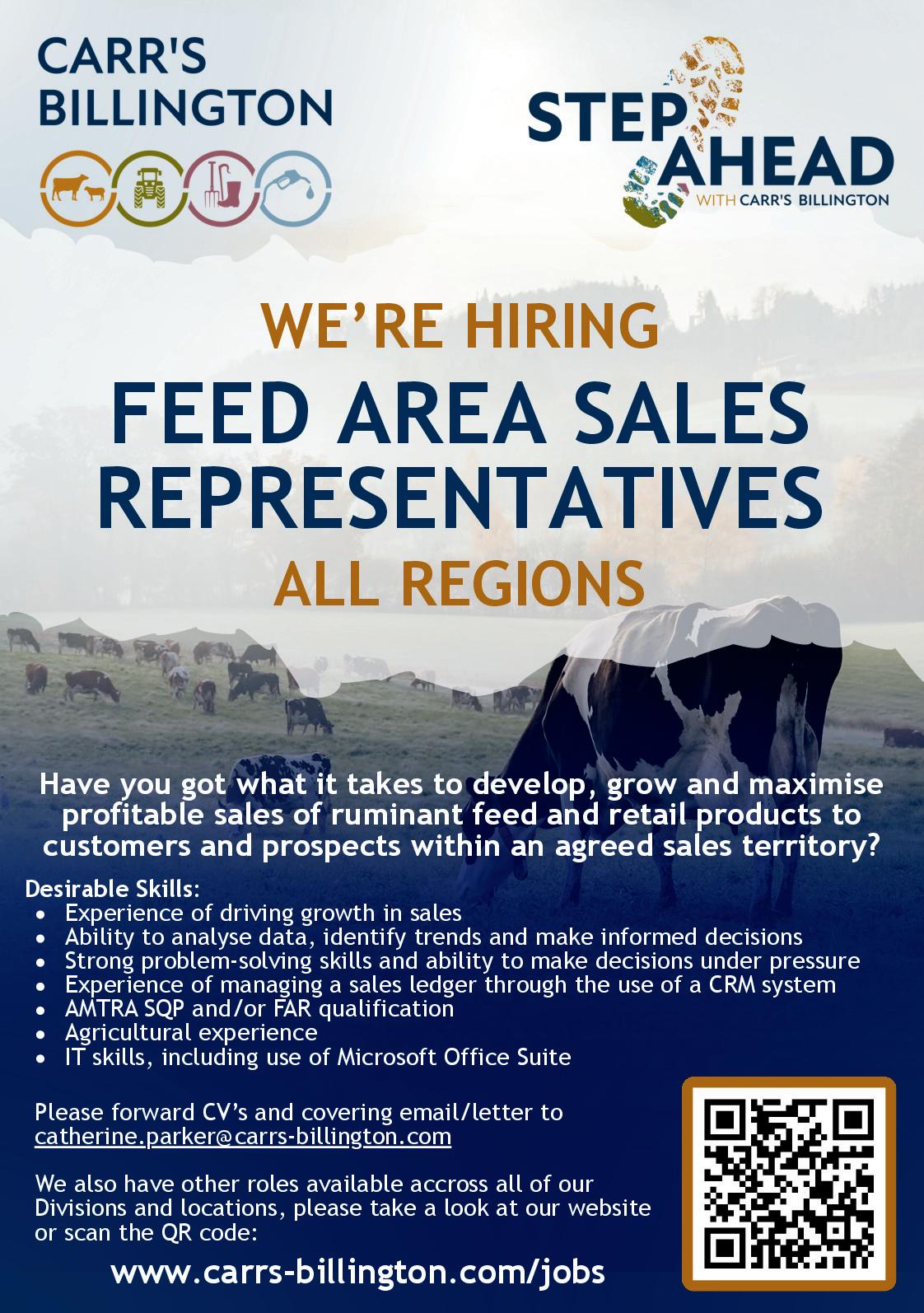

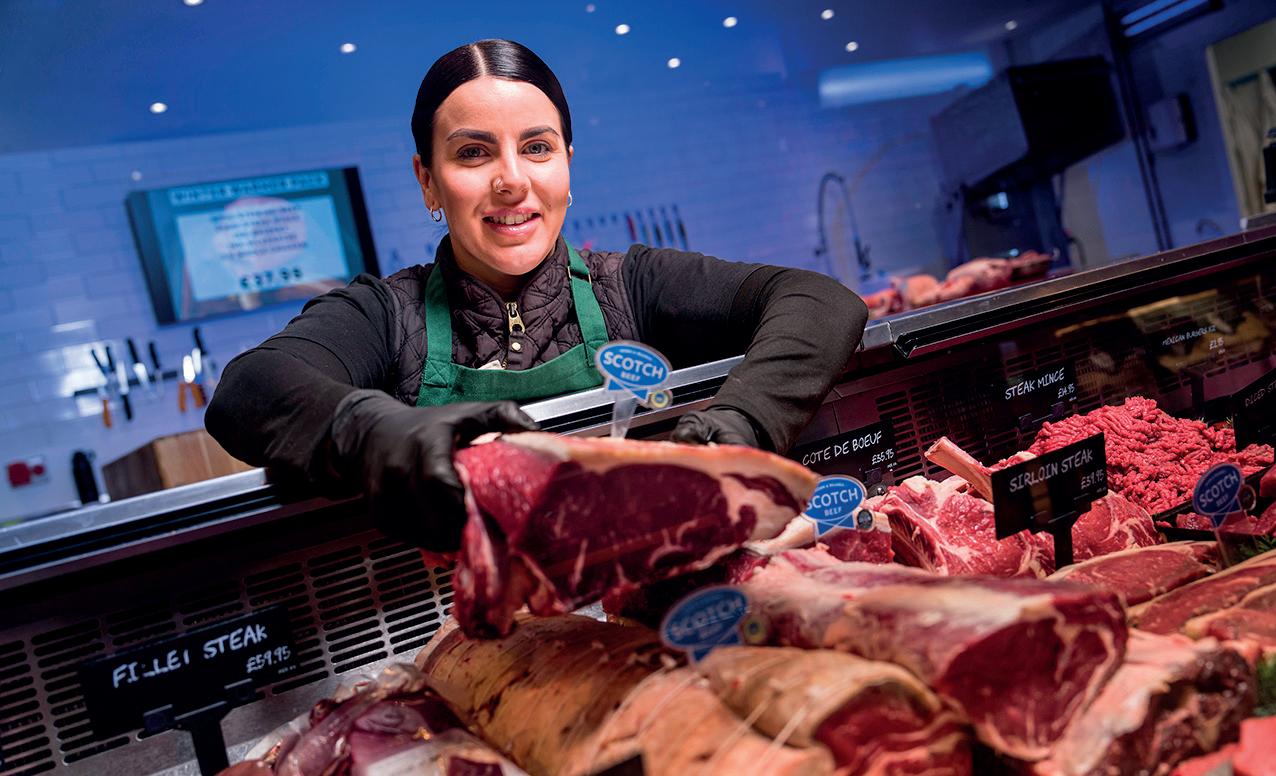
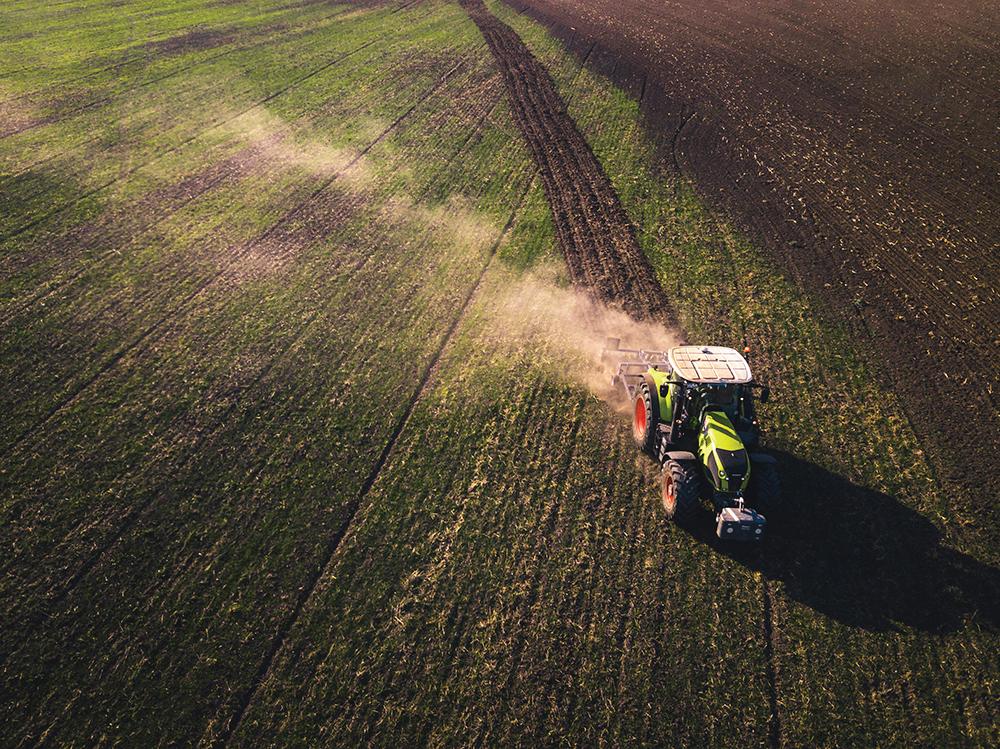
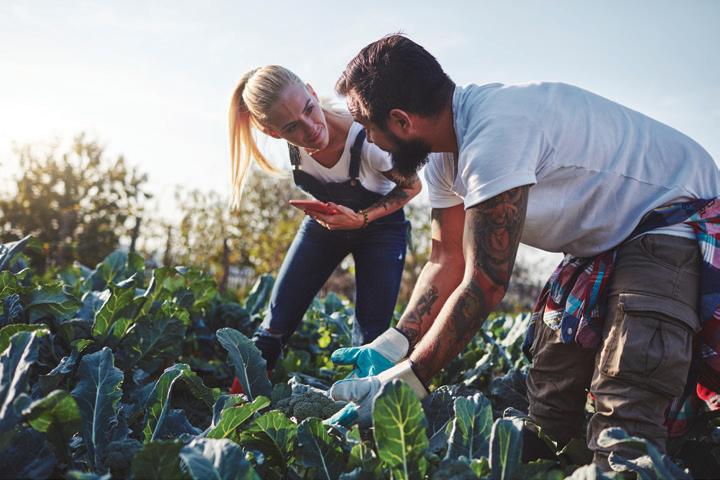
Apprenticeships can offer a practical route into an industry, giving people the skills they need to thrive in their chosen career. Butchery, however, is still sometimes overlooked, according to Quality Meat Scotland (QMS) chief executive Sarah Millar.
QMS runs apprenticeships for the butchery sector throughout the year to offer newcomers a wage alongside learning, yet they are often a ‘forgotten path’.
“The Scottish butchery sector is a creative, innovative place, providing brilliant service and is a cornerstone of communities. Butchery is a real craft, and an apprenticeship is an opportunity for people to develop skills and become an artisan at what they do,” she says.
The apprenticeships are offered via Craft Skills Scotland and are open to anyone at any age – and the sector is crying out for fresh talent.
Hayley Glen is now a fully qualified butcher at The Butcher The Baker in Dundee, having taken on an apprenticeship and completed the meat and poultry skills butchery pathway. She also holds the Craft Butcher Diploma, which is an internationally-recognised qualification and is the highest qualification in the Scottish retail meat industry.
The art of butchery has always been of interest to Hayley, and her career has taken a few unexpected turns.
and he signed me up for an apprenticeship.”
She then went on maternity leave, and when she returned took on a degree in retail management. It led Hayley to a new role in a multiple grocery retail management programme, managing the in-store butchery counter. It showed her, though, that her heart was firmly in butchery and she ended up assisting when The Butcher The Baker’s counter was short-staffed.
“I then came back to working fulltime on the butchery three years ago and decided to do my Level 6 qualification and then the diploma,” says Hayley.
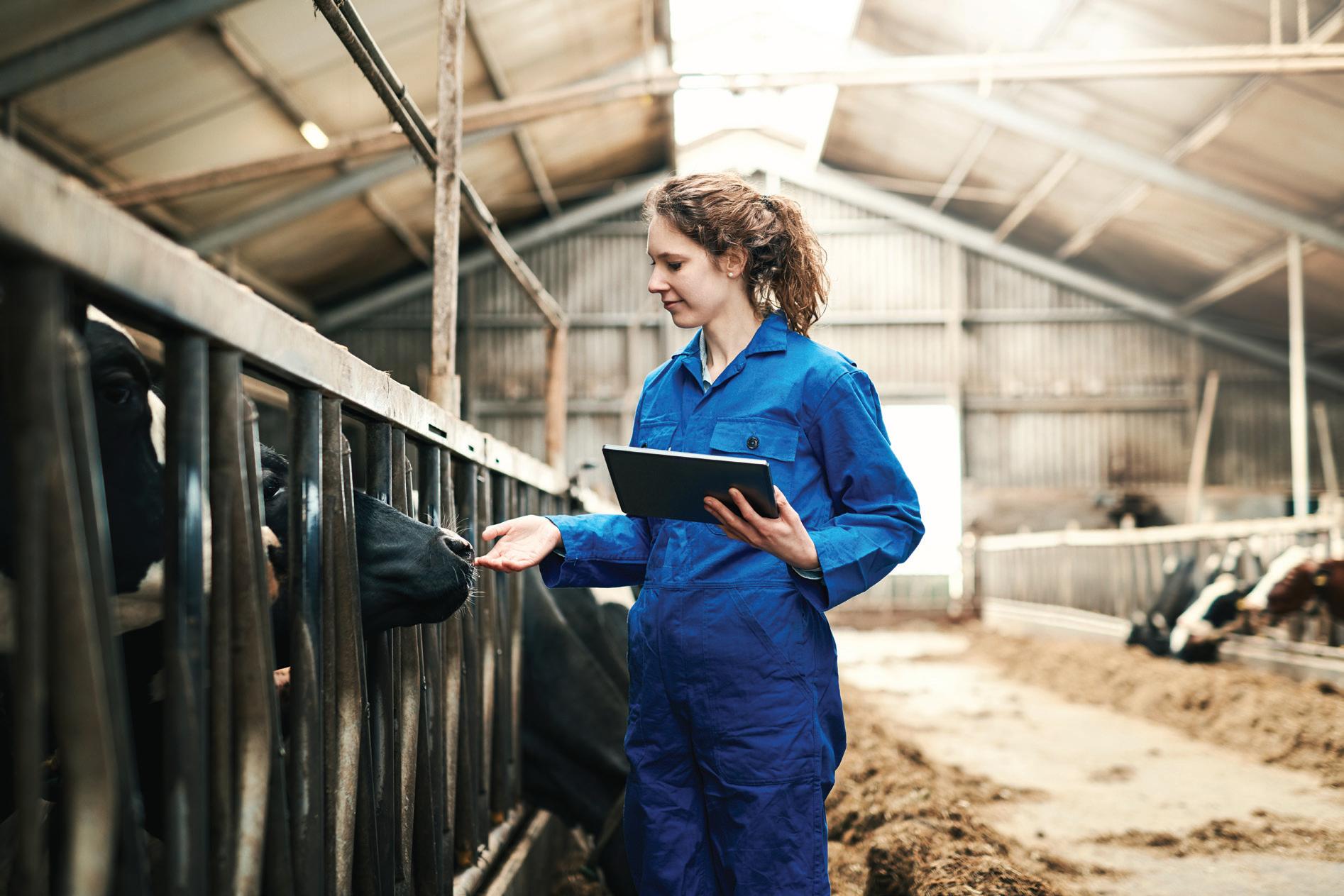
She says: “I left school and worked at a butcher’s as a counter assistant on the ready-to-eat side of things, but the shop layout meant I could watch the butchers working opposite – I was just mesmerised by their work.
“I asked my boss if I could do it,
“I feel really empowered to have done it and it has given me a career. I really enjoy what I do – it does not feel like work. As a mother, I want my daughter to see that women can thrive in any field, including those traditionally dominated by men.”
Hayley says the support during her apprenticeship was very helpful – the trainer came into the shop to do it with her.
QMS further supports apprentices with its Scotch Butchers Club, which helps butchers across Scotland to promote the Scotch Beef, Scotch Lamb and Specially Selected Pork brands in independent retail.
Hayley says she is a creative person, and uses her artistic flair every day, with her manager David Webster, a fourth-generation butcher, encouraging and supporting her to develop these skills.
“He genuinely values my input into the shop. I love creating eye-catching displays and creations that highlight the natural beauty of meat. The role is a combination of skill and imagination, turning an everyday product into a showcase of our art.
I want my daughter to see that women can thrive in any field
HAYLEY GLEN
“Having an artistic approach to butchery does not just enrich my work – it is a joy to have customers appreciating what they see. We have a diverse customer base and every day is different. We spend time talking to customers about cuts, cooking techniques and sourcing meat responsibly – it is such a rewarding job when we gain customers’ trust, and they feel confident about their food choices.”
Working as a biosecurity adviser at Livetec Systems, Amy Davies helps poultry producers across the UK strengthen their defences against disease. Farmers Guardian reports.
Whether delivering one-to-one advice on-farm or developing training courses in the office, Amy Davies’ goal is clear: to improve animal welfare and build supply chain resilience through better biosecurity.
She says each step of her career so far has brought her closer to where her passion lies.
“I have always had a passion for animals and sustainable food production,” says Amy.
“Volunteering on poultry farms while studying at Berkshire College of Agriculture showed me just how complex and fascinating this industry is; I was hooked.”
She went on to specialise in poultry production studies at SRUC, continuing to gain hands-on experience by supporting the day-to-day running of commercial poultry farms.
“You quickly realise that what feeds the nation is often just down the road, yet so few people understand what goes into producing chicken and eggs,” she says.
After gaining broader livestock experience in her teens and early 20s, helped by opportunities through Princes Risborough Young Farmers Club, Amy was drawn to agricultural education.
She began as an animal welfare instructor at a local school, and then returned to Berkshire College of Agriculture to lecture in agricultural studies for five years while continuing to volunteer on poultry farms.
In the classroom, Amy noticed poultry and pig farming were often treated as optional extras in the curriculum.
“That is when I knew I wanted to
champion these sectors. There is so much innovation and opportunity that people just do not see,” she says.
Amy’s passion for education and real-world insight made her a natural fit for Livetec Systems, where she has played a key role in the biosecurity advisory team for just over a year.
A City and Guilds-qualified trainer, she delivers consultancy and training for producers in the UK egg and poultrymeat sectors.
This involves farm visits to review daily operations and identify practical, tailored steps to enhance biosecurity – a critical subject amid the ongoing threat of avian influenza.
Amy says: “We want to make disease prevention manageable and meaningful. I have found it is important to bring an open mind to every conversation. It is not a one-way process; it is about discussing and listening to farmers to find solutions that work.”
She also shapes Livetec’s training resources – both in-person and online – to make biosecurity more accessible for producers of all sizes.
Despite having no farming background, Amy’s life now revolves around agriculture. She and her wife Tayla are both first-generation farm-
ers. They run a sheep flock in Buckinghamshire, and Tayla also works as a stockwoman on a mixed livestock and arable enterprise nearby.
“We support one another and learn something new from each other every day,” says Amy.
“At first, we thought we might struggle coming into such a generational industry, but we have been welcomed with open arms. I would definitely encourage more women to pursue careers in agriculture – and consider poultry in particular.
“The sector is evolving and needs diverse perspectives. It is not just technical ability that is important –
communication, problem solving and leadership skills are also crucial. And women bring all of that. Training is not about ticking boxes; it is about building knowledge, confidence and the desire to do things better.”
So what is Amy’s message to those considering a career in poultry?
She says: “If you care about animal welfare, sustainability or innovation and want to make a real difference, this industry is full of opportunity.
“Whether you are on-farm, in advisory work or delivering education, you are part of something that feeds the nation and puts animal welfare first.”



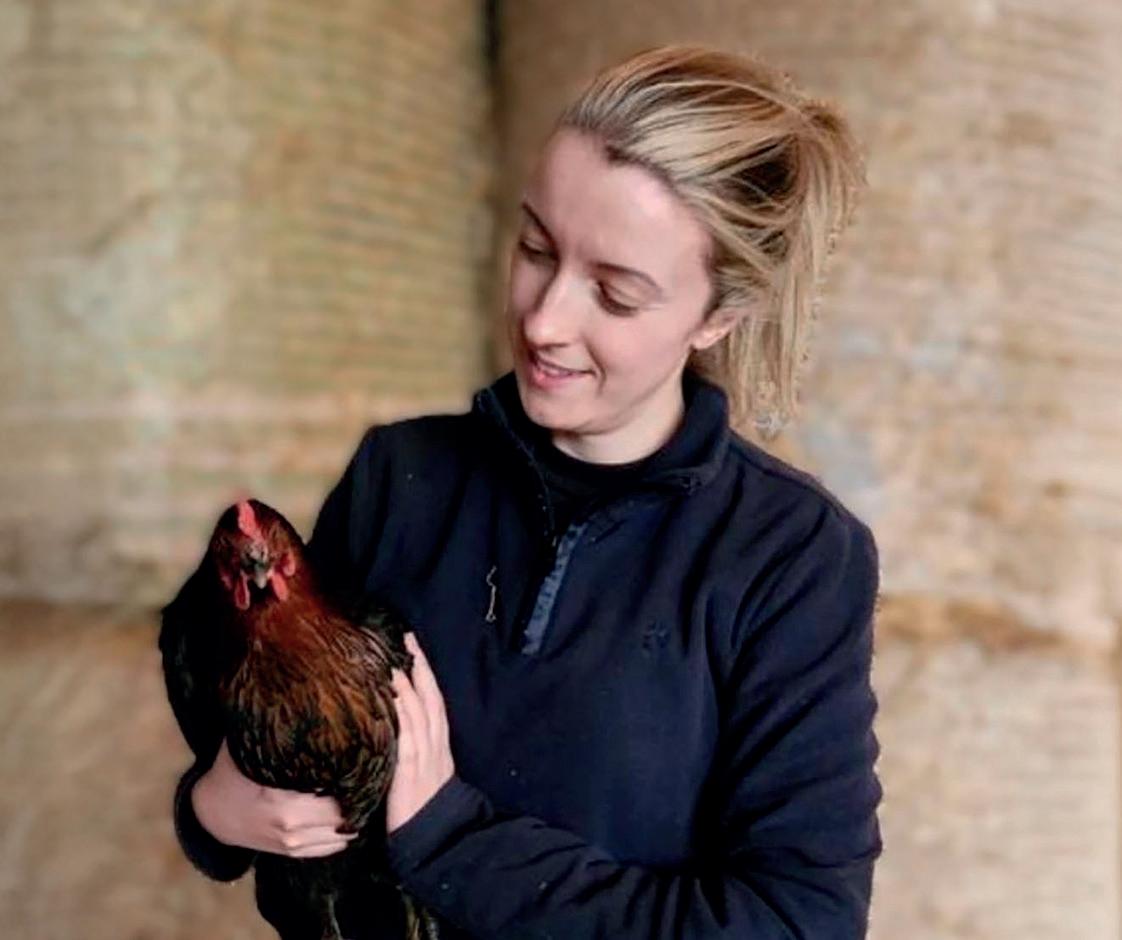




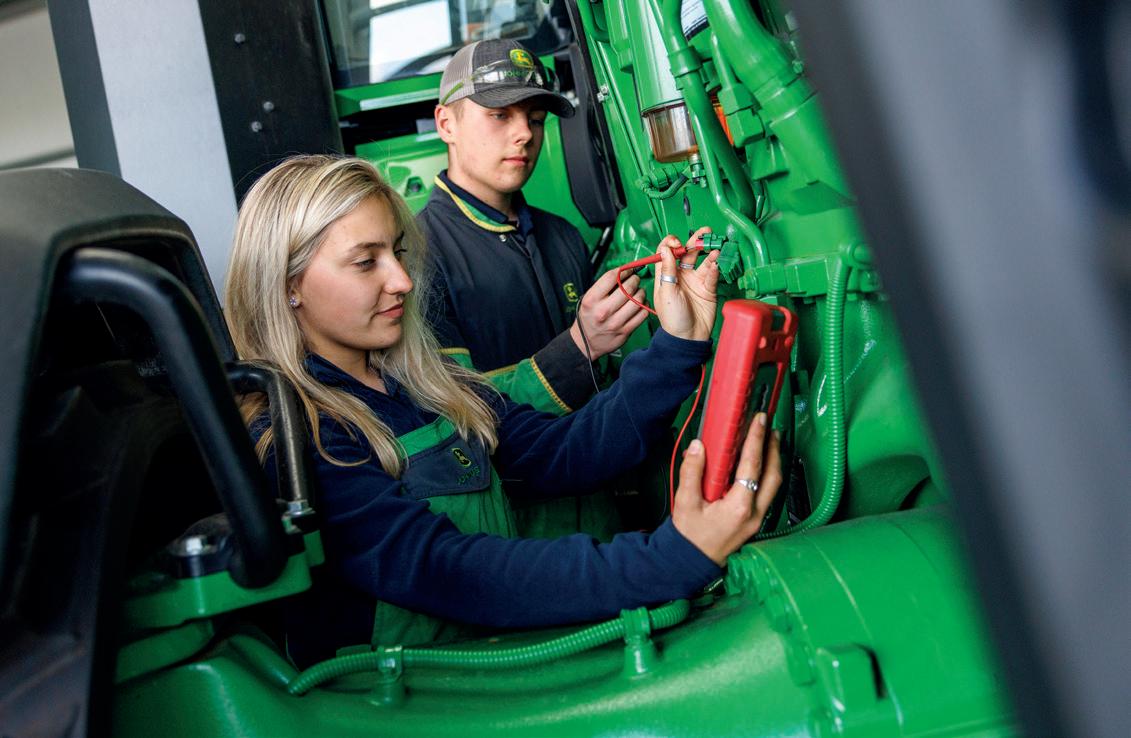
Building your own business off the farm is not always easy, and you have to make it work for you. Alex Black finds out more from one farmer in Wiltshire.
Young people from a farming family looking to get started in agriculture often find themselves in the position where the family farm cannot support them as a full-time member of staff.
Working on another farm, managing a diversification project or contracting can be an option for those looking to get their foot in the door.
However, it can be challenging for young farmers to own and operate their own businesses due to the high capital costs of equipment used.
John Hercman, of Haydock Finance, says it is quite a common occurrence in the sector.
“We have seen all sorts of different things and ideas that have been generated through the years like bed-and-breakfast pigs, holiday lets and all sorts of different diversification,” he says.
“We work with quite a large number of young farmers who choose to go alone, most commonly in contracting, but across a number of different sectors.
“We are very aware of this as a challenge in this industry.”
When looking for funding to start up a business, John says the main area for applicants to consider is how to demonstrate why they are seeking the finance.
“We know that the individual

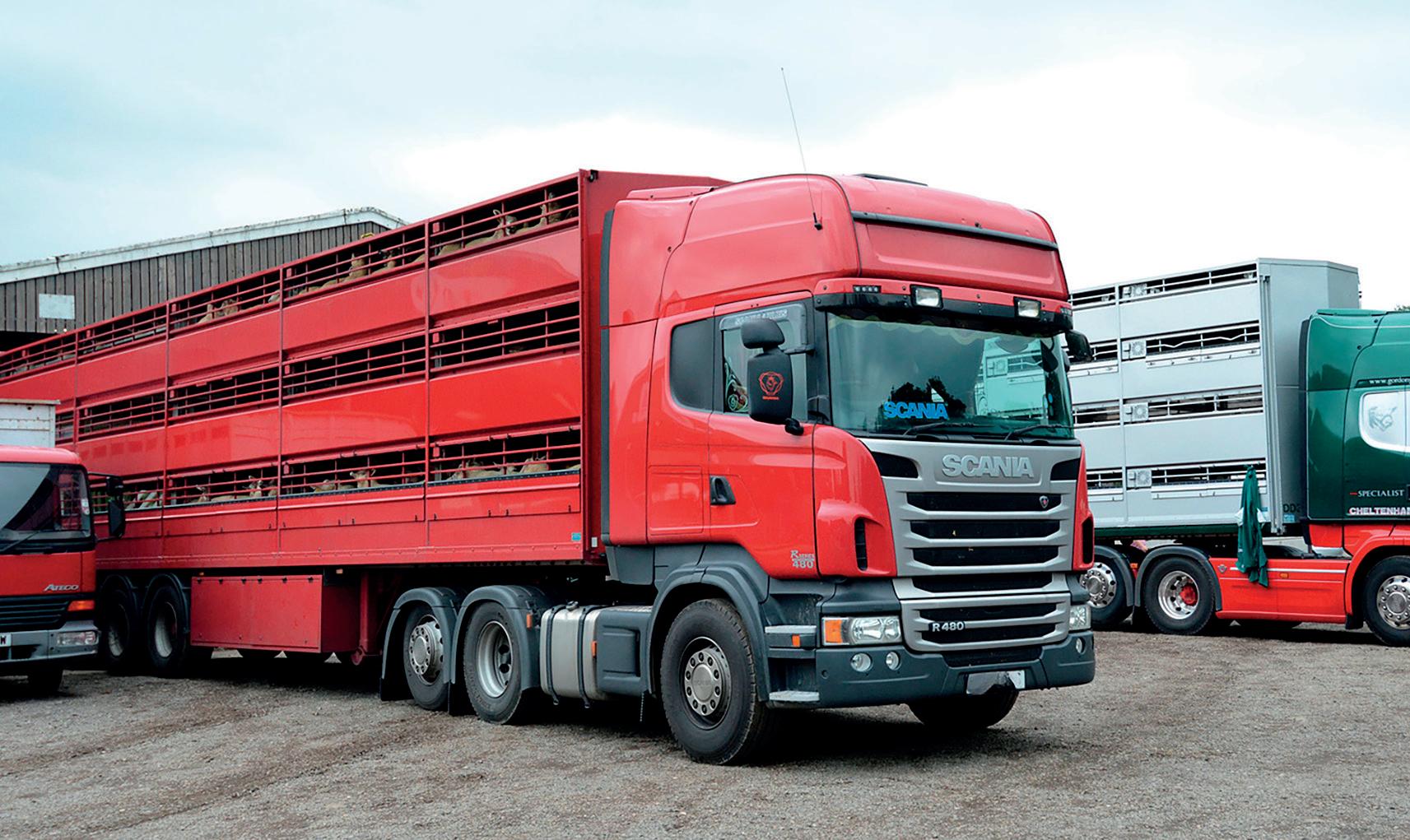

wants to borrow money for a reason,” he says, adding it is sometimes complicated just communicating that to the funder.
“They want to understand who runs the business, what their experience is, who their customers are and how they believe the business will trade.”
Jack Ubhie-Webb is a farmer in Wiltshire who found himself in this situation on his family farm.
He always wanted to work in the farming sector but discovered his true calling in livestock transport, creating JT Webb, a livestock haulage business.
On leaving school, he had an engineering apprenticeship and then decided he wanted to ‘help out’ more at home.
“We were not big enough to have me full-time,” he says.
In 2021, he started by buying a small lorry and moving some livestock. Originally, he had been looking to pick up some work while the farm was quiet.
“Now it is a full-time job,” he says.
Jack warns people not to jump in
to a new enterprise too fast, which could be very tempting.
“We have had months where you are so busy and then the next month you lose two contracts through nobody’s fault, it is just the work is not there or the rates have dropped so much, which does not make it beneficial to do,” he says.
He also highlights that if businesses have a lot of machines or equip-
ment on finance, they still need to be paid for.
“So, it could hit you if you jump too fast.”
John agrees, saying it can be difficult when starting out to identify which opportunities will work for the business.
“It is often enticing and exciting to pursue more: more income, more turnover, more volume, taking on additional staff, but those are the types of scenarios where we will often see businesses getting themselves into a struggle quite quickly,” he says.
We have seen all sorts of ideas that have been generated through the years like bedand-breakfast pigs and all sorts of diversification
JOHN HERCMAN
Jack adds he is cautious of ‘taking any big jumps’ at the moment because there is so much uncertainty around, particularly as farmers attempt to understand the impact of Inheritance Tax changes.
“We have already seen quite a decrease in the numbers of cattle being moved even in the markets.
“You are not getting the numbers around anymore, which obviously has a big knock-on effect for me personally, when you just rely on the numbers and markets and going into slaughterhouses,” he says.

Reporting to: Group Head of Media Sales | Location: Preston/Hybrid Hours: 35 hours (full-time)
The role:
Farmers Guardian is looking for an experienced digital sales professional to identify new opportunities and influence companies’ media buying habits, with a focus on their digital media advertising and marketing spend. Due to the ever-changing nature of the industry, you’ll be expected to spot new revenue-generating opportunities and exploit market trends in order to exceed revenue targets.
The main function of the role is to grow digital revenues, broadening the client base whilst providing world-class service to existing clients.
Duties and responsibilities:
• Business development: Identify and pursue new sales opportunities to expand your portfolio and drive revenue growth with both agencies and direct clients.
• Account management: Proactively manage and nurture existing accounts, ensuring high-quality service, timely solutions and strong, long-term relationships.
• Revenue growth: Consistently meet and exceed sales targets, demonstrating YoY growth.
• Client engagement: Act as the primary point of contact for digital clients, leveraging strong presentation skills and relationship-building.
• Collaboration: Work closely with internal teams including marketing, content solutions and operations to execute successful campaigns across web, video, podcast, socials and events.
• Reporting: Manage an up-to-date sales pipeline, tracking progress and providing accurate business forecasts to management.
Experience: Minimum of 3+ years in digital media sales. An understanding of the agricultural sector is desirable but not essential.
Agency expertise: Strong portfolio of UK media agency accounts and prospective clients, with a proven track record of business growth.
Proactive & driven: A target-driven strategic thinker who thrives on selling, networking and securing new business opportunities.
Strong communication skills: A trusted partner to clients, able to deliver clear, compelling solutions that address their business needs, with the ability to present and negotiate at all levels.
Organised & detail-orientated: Effectively manage your pipeline, track progress, and provide accurate forecasting to achieve business goals.
We offer an excellent package including:
• 25 days holiday increasing to 27 after two years (pro rata’d)
• An extra day off on your birthday
• Matched pension contribution up to 6%
• Employee Life assurance - x4 of basic salary Employee assistance programme
• Long service awards and employee of the month
• Employee discount scheme
• Employee referral scheme
• Exceptional career progression. We are ever-evolving, if you work hard and do well - with our help and support there are no limits to your speed of progress
About us
Agriconnect is the largest multi-platform agricultural information business in the UK. Our brands reach deeply into all the major agricultural sectors – arable, dairy, livestock, agricultural machinery, finance, and equipment. We take a farmer-centric approach to media.
We strive to create a culture that is open and respectful, where differences are valued and celebrated. We want everyone to be able to reach their full potential, so we are committed to cultivating a company that promotes inclusion and belonging.




Scarisbrick, Lancashire PURPOSE
To carry out fieldwork operations (groundwork, spraying, weeding etc) and support the Owner in effective running of the farming operations of this innovative sustainable vegetable grower. KEY ACCOUNTABILITIES & RESPONSIBILITIES
• Spraying operations on 200Ha of brassica production, to include all documentation and record keeping for legal and customer requirements.
• Groundwork, weeding operations, and management of other contractors.
• Support other farm operations - harvesting, yard work. EXPERIENCE
• Min. 1 year experience, working in a horticultural enterprise • Preferred - worked in Brassica operations • PA1 & PA2 certificates as required
To apply for this role or for more information, please email your CV to paul@paulmolyneuxconsulting.co.uk
We currently have a wide range of positions available nationwide to include:-
• Assistant to Manager, South Wales, 470 cows
• Herd Manager, South Leicestershire, 400 cows
• TMR Tractor Driver/Stockperson, North Norfolk Relief Herdspersons Nationwide
LKL provides the perfect solution for finding the very best herd carers and managers.
Visit our website for a full list of our current vacancies..
Web: www.lklservices.co.uk
Published October 24, 2025



